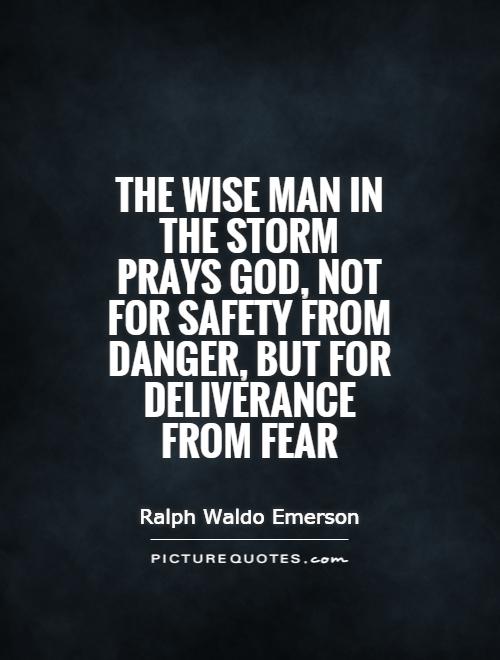The wise man in the storm prays God, not for safety from danger, but for deliverance from fear

The wise man in the storm prays God, not for safety from danger, but for deliverance from fear
Ralph Waldo Emerson, a renowned American essayist, lecturer, and poet, was known for his profound insights into human nature and spirituality. One of his most famous quotes, "The wise man in the storm prays God, not for safety from danger, but for deliverance from fear," encapsulates his belief in the power of inner strength and resilience in the face of adversity.Emerson believed that true wisdom lies in facing challenges with courage and faith, rather than seeking external protection from harm. In the midst of a storm, whether literal or metaphorical, the wise man does not ask for a shield from danger, but for the strength to overcome his fears and doubts. This perspective reflects Emerson's transcendentalist philosophy, which emphasizes the importance of self-reliance, intuition, and spiritual growth.
For Emerson, fear is not just a natural response to danger, but a barrier to personal growth and enlightenment. By surrendering to fear, we limit our potential and hinder our ability to navigate life's challenges with grace and resilience. Instead of seeking safety and security in external sources, Emerson believed that true liberation comes from conquering our inner demons and finding peace within ourselves.
In the context of Emerson's teachings, the wise man's prayer for deliverance from fear is a powerful affirmation of his faith in the divine order of the universe. By trusting in God's wisdom and guidance, the wise man can transcend his fears and embrace the unknown with courage and grace. This spiritual journey towards self-discovery and enlightenment is at the core of Emerson's philosophy, which encourages individuals to seek truth and meaning in their lives through introspection, self-awareness, and spiritual growth.












 Friendship Quotes
Friendship Quotes Love Quotes
Love Quotes Life Quotes
Life Quotes Funny Quotes
Funny Quotes Motivational Quotes
Motivational Quotes Inspirational Quotes
Inspirational Quotes